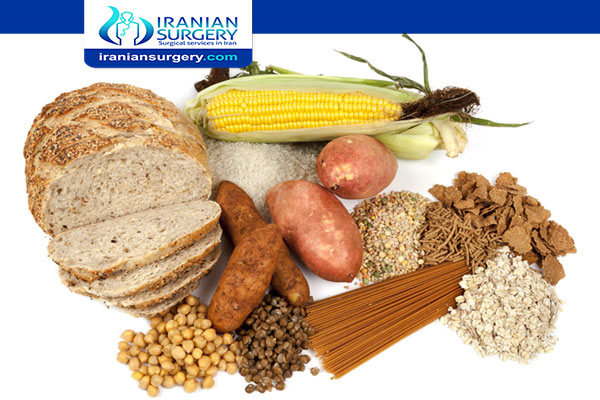What to eat after hemorrhoid surgery?
A hemorrhoidectomy is surgery to remove internal or external hemorrhoids that are extensive or severe. Surgical hemorrhoidectomy is the most effective treatment for hemorrhoids, though it is associated with the greatest rate of complications.
Read more about : Foods that heal fissures
Read more about: Hemorrhoid
Read more about: Stages of fissure healing
Read more about: Femoral hernia
Hemorrhoid causes
Common causes of the excess pressure that results in hemorrhoids include:
- Sitting too long on the toilet
- Straining during a bowel movement
- Ongoing diarrhea or constipation
- Pregnancy
- Obesity
- Not getting enough fiber in your diet
Read more about: Hemorrhoidectomy surgery in Iran
Read more about : Stapled haemorrhoidectomy recovery
Diet after hemorrhoid surgery (hemorrhoidectomy):
The best foods to eat immediately following hemorrhoid surgery are low-fiber foods such as white bread, mashed potatoes, soft-cooked vegetables and healthy proteins. But to prevent future hemorrhoids, high-fiber foods make the best choice.
While recovery from hemorrhoid surgery isn't quick, you don't need to follow a special diet for very long following your procedure. For the first few days, you need to minimize movement through the area so that your wound can heal, which means eating foods that won't add bulk to your stool and create big bowel movements. This type of diet is called a low-residue diet.
Read more about: Laser hemorroids surgery in Iran
- Start with clear liquids to prevent nausea, vomiting, and constipation, (soup, Jell-O, juices, popsicles, carbonated beverages.) Drink plenty of water (at least 8 large glasses a day.)
- Eat lots of whole grains, green leafy vegetables, and fruits.
- Avoid foods that cause constipation such as dairy products, red meat, processed foods such as pizza, frozen dinners, pasta, and sugar products such as cakes, pies, pastries, doughnuts and drinks containing caffeine.
- Comfort foods like chicken noodle soup and meatloaf with mashed potatoes are low-residue foods to eat after hemorrhoid surgery.
After dealing with hemorrhoids and the recovery from your surgery, you may be ready to make the necessary changes to your diet to prevent a recurrence of your piles, which means a high-fiber diet.
Fiber is an indigestible substance found in plant foods. Because your body isn't able to digest fiber, it adds bulk to your stools, making them easier to pass. That means you have less straining, more regularity and a decrease in your risk of developing hemorrhoids. Upping your fiber intake not only improves your bathroom habits, but may also keep you feeling full longer, benefit your heart health and improve your blood sugar control.
Read more about: hemorrhoidectomy complications
After hemorrhoid surgery
Sit in 8 to 10 centimeters of warm water (Sitz bath) for 15 to 20 minutes 3 times a day and after bowel movements. Then pat the area dry. Do this as long as you have pain in your anal area. Avoid sitting on the toilet for long periods of time or straining during bowel movements.
Read more about: Anal fissure surgery in Iran
How long does it take to heal from hemorrhoid surgery?
It is common to have some light bleeding and clear or yellow fluids from your anus. This is most likely when you have a bowel movement. These symptoms may last for 1 to 2 months after surgery. After 1 to 2 weeks, you should be able to do most of your normal activities. For comfort, you may want to sit on a towel in your bathtub. Avoid toilet paper. Instead clean the area after a BM by spraying with warm water.
Read more about: Rectal bleeding
Hemorrhoidectomy recovery (in home)
Patients can experience pain and discomfort during the first week following surgery, for which painkillers are usually prescribed. An antibiotic such as metronidazole may be prescribed to prevent infections.
Minor to moderate bleeding can occur during defecation for the first two weeks following surgery. This is normal and usually subsides once the rectum has healed properly. If a pack was inserted in the rectum after surgery, it can be removed within a day after discharge.
An ice pack may be used for reducing the swelling and pain in the anal region.
A mild anesthetic ointment can be applied before and after bowel movements to relieve the pain. Sitting upright is usually a major problem following surgery.
For maintaining a comfortable sitting posture, a special type of doughnut shaped cushion may be used.
Avoiding constipation is crucial during convalescence.
The doctor usually prescribes stool softeners and laxatives to prevent constipation.
The patients are advised not to lift heavy weights during the recovery period. Complete recovery occurs between 6 weeks to 2 months. However, the patient can generally resume work within 2 weeks.
Read more about: stapled hemorrhoidectomy complications
10 common questions about what to eat after hemorrhoid surgery
[kkstarratings]




3 Comments
I did hermorroids surgery last week and very painful. How can I reduce it.
hello dear ellias, Most people have some pain after Hemorrhoid Surgery, Your doctor will probably prescribe a painkiller to ease the discomfort. Soaking in a warm bath also might help.
Worst pain I ever experienced it’ll be a week in 2 days since the surgery still recovering the worst part is the pain when you have to poop hopefully I’ll never have hemorrhoids again an it’ll be worth it 5 out of 500 people usually get it back after surgery.